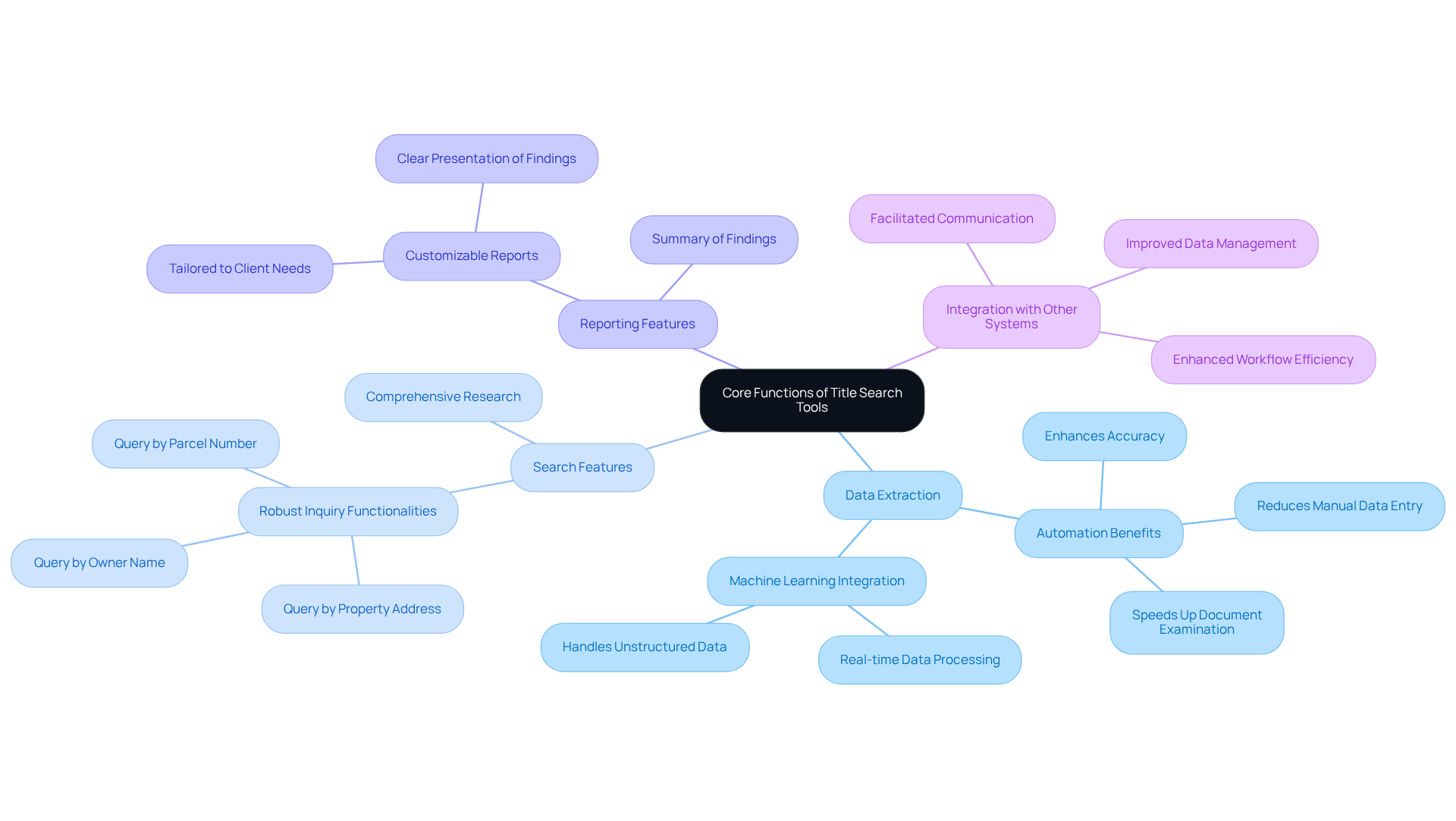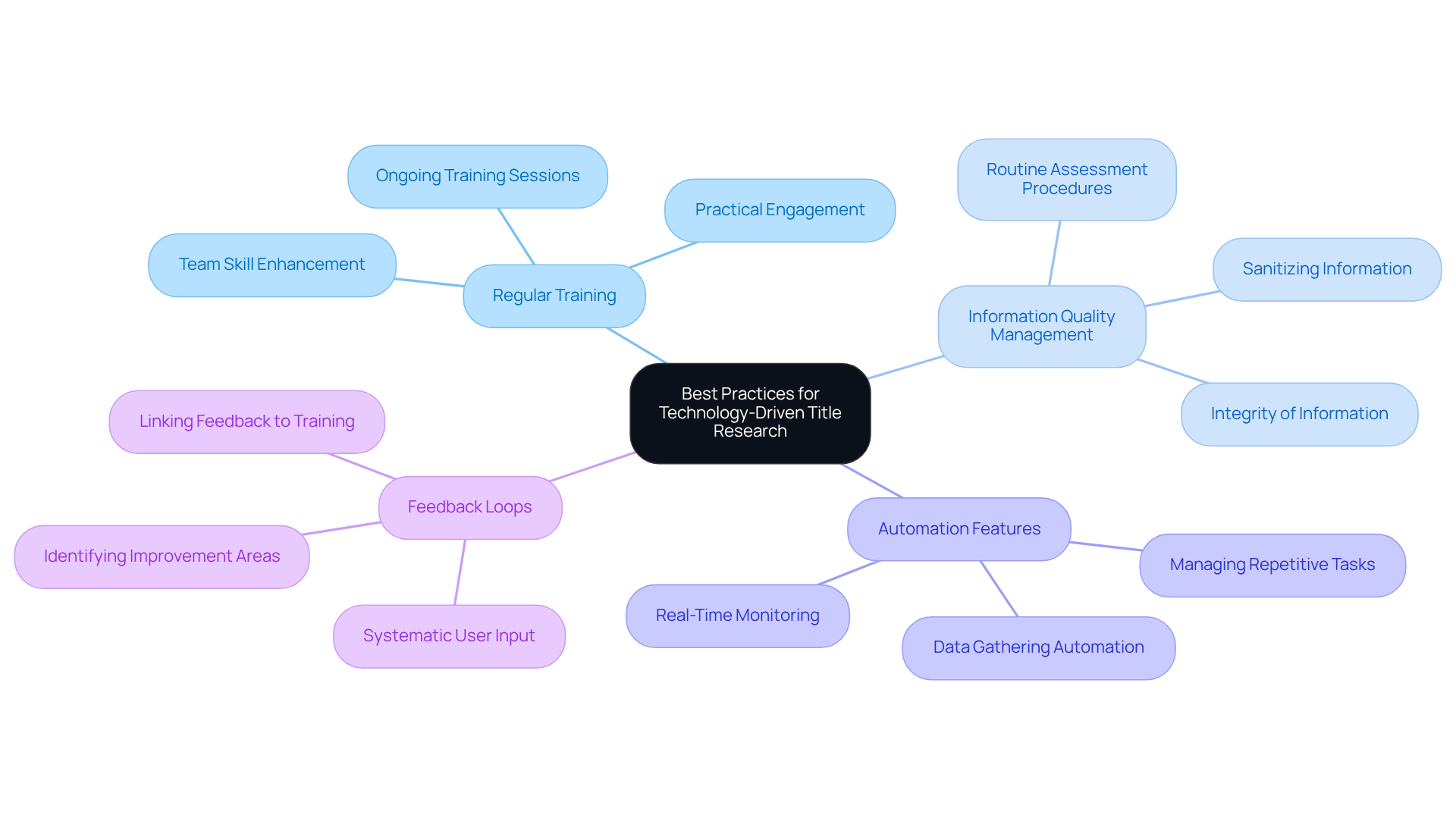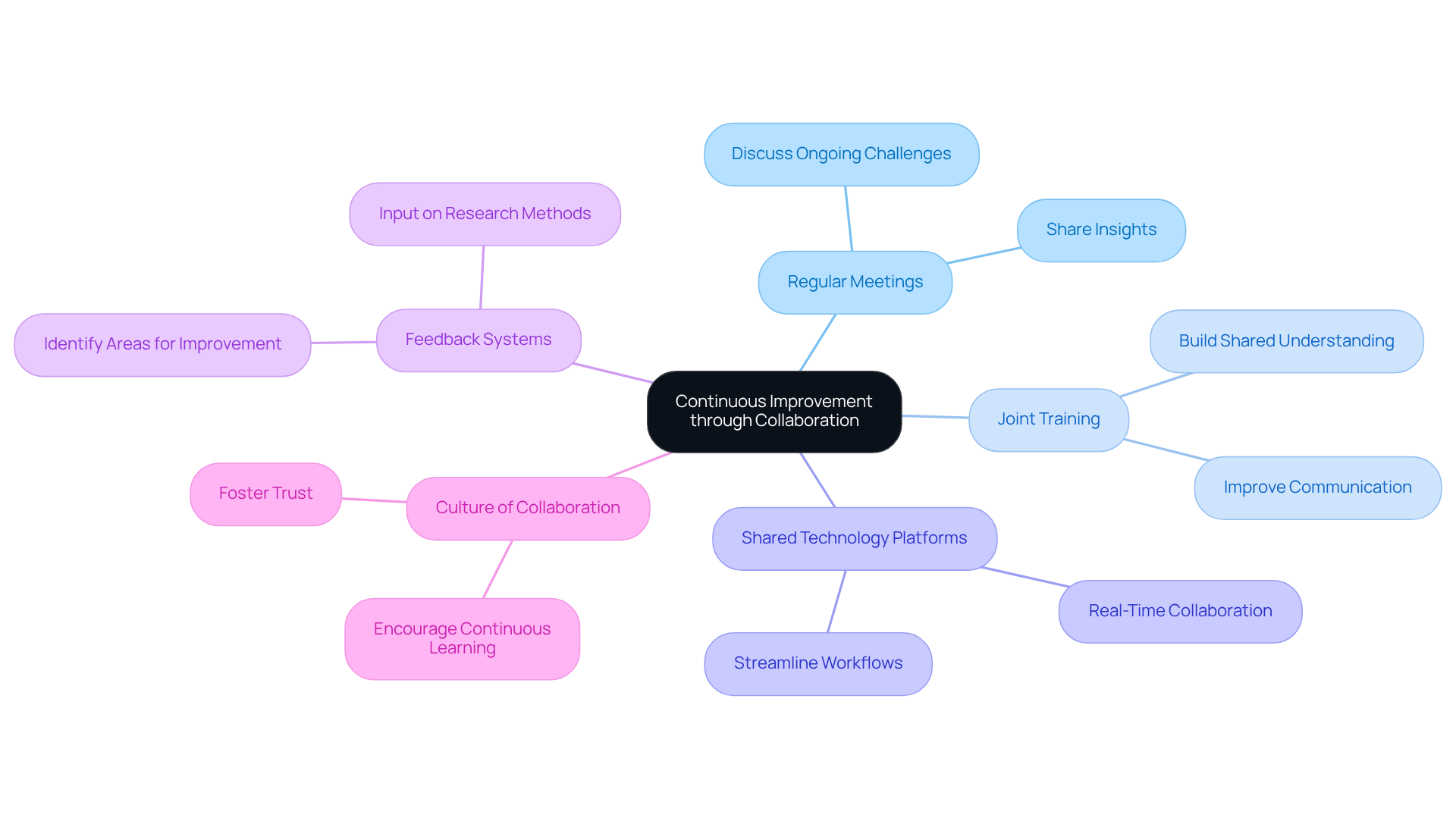Overview
The essential tools for a successful title search and reporting are characterized by:
- advanced data extraction capabilities
- robust search functionalities
- customizable reporting features
These elements significantly enhance the efficiency and accuracy of property investigations. Furthermore, the article elaborates on how these tools leverage technology to:
- automate processes
- improve data management
- facilitate collaboration among professionals
Consequently, this leads to an elevated level of service for clients.
Introduction
The landscape of property ownership and title research has undergone a dramatic transformation, propelled by technological advancements that enhance both efficiency and accuracy. As the demand for swift and reliable title searches continues to grow, it becomes imperative for professionals in the field to grasp the essential tools available.
What key features can revolutionize title research into a streamlined process? Furthermore, how can practitioners effectively leverage these tools to navigate common challenges?
Exploring these pivotal questions unveils not only the capabilities of modern title search tools but also the best practices that can lead to substantial improvements in service delivery.
Understand the Core Functions of Title Search Tools
The use of tools for title search and reporting is indispensable for efficiently confirming property ownership and identifying any liens or encumbrances. Their key functions include:
- Data Extraction: By leveraging machine learning and optical character recognition, these advanced tools swiftly extract pertinent data from title documents. This automation significantly reduces the time spent on manual data entry and minimizes the risk of errors, thereby enhancing overall precision in document examinations. Indeed, thanks to technology, property examinations can now be completed in a matter of days or even hours.
- Search Features: Effective document retrieval tools provide robust inquiry functionalities, allowing users to query by various criteria such as property address, owner name, or parcel number. This flexibility is essential for conducting thorough and comprehensive research.
- Reporting Features: The capacity to generate detailed reports summarizing findings is crucial. These reports should be customizable to meet the specific needs of clients or stakeholders, ensuring that all relevant information is presented clearly.
- Integration with Other Systems: Seamless integration with other real estate software enhances workflow efficiency, facilitating improved data management and communication among team members.
According to Orchestrate, "Technology is a driving force behind the modernization of property investigations, bringing speed, accuracy, and security to the procedure." By understanding these essential functions, researchers can select tools that align with their operational requirements, ultimately leading to more efficient evaluations and enhanced reporting methods.

Implement Best Practices for Technology-Driven Title Research
To maximize the effectiveness of technology in title research, consider the following best practices:
-
Regular Training: Ongoing training for all team members on the latest features and updates of title search tools is essential. Regular training sessions keep staff informed about new functionalities that can significantly enhance their workflows. As Benjamin Franklin wisely noted, 'Tell me and I forget, teach me and I may remember, involve me and I learn.' This principle underscores the importance of practical engagement in training.
-
Information Quality Management: Establish robust procedures to routinely assess and sanitize the information used in document examinations. High-quality information is essential for obtaining precise results, making the integrity of information a top priority. Subpar information quality can lead to considerable legal and financial responsibilities, as evidenced by the challenges faced by property companies that do not guarantee information precision. Flawed information can result in missed business opportunities and damage to reputation, highlighting the crucial stakes involved in effective information management.
-
Utilize automation features within tools for title search and reporting to manage repetitive tasks such as information entry and report generation. This approach not only saves time but also minimizes the risk of human error, enhancing overall operational efficiency. Automated systems can continuously track changes in property ownership, ensuring that ownership companies have access to the most current information. By automating data gathering and verification methods, property firms can significantly decrease discrepancies and enhance precision.
-
Feedback Loops: Create a systematic method for gathering input from users regarding the tools and procedures in place. Continuous feedback is vital for identifying areas for improvement and ensuring that the tools effectively meet the needs of the team. As Jack Welch stated, 'An organization’s ability to learn, and translate that learning into action rapidly is the ultimate competitive advantage.' Linking feedback to broader training effectiveness emphasizes the significance of adaptability and ongoing enhancement in the research process.
By following these best practices, researchers can significantly enhance their efficiency and accuracy, ultimately leading to improved service for their clients.

Foster Continuous Improvement Through Collaboration with Land Service Professionals
To promote ongoing enhancement in property research, cooperation with land service experts is essential. Regular meetings with land service professionals should be scheduled to discuss ongoing challenges and share insights. These discussions can lead to the identification of common issues and collaborative problem-solving. As Bill Bethel stated, "A successful team is a group of many hands in one mind," emphasizing the unity required for effective teamwork.
Furthermore, organizing joint training sessions that involve both research specialists and land service professionals is crucial. This approach helps build a shared understanding of processes and improves communication between teams. Such joint training has been demonstrated to result in enhanced outcomes in research, as it promotes a culture of collaboration and ongoing learning.
In addition, utilizing shared technology platforms that allow for real-time collaboration and information sharing can streamline workflows. This ensures that all parties have access to the latest data and insights. The idea that "continuous improvement is a mindset requiring constant learning and adaptation" underscores the necessity of ongoing collaboration in this context.
Moreover, establishing formal feedback systems enables land service professionals to offer input on research methods. Their insights can be invaluable in identifying areas for improvement and developing more effective practices. However, it is essential to be aware of common pitfalls in implementing these mechanisms, such as ensuring that feedback is actionable and leads to tangible changes.
By fostering a culture of collaboration, title researchers can continuously improve their processes by leveraging tools for title search and reporting, leading to enhanced efficiency and better outcomes for clients. Teamwork fosters trust, which accelerates progress, ultimately benefiting all stakeholders involved.

Conclusion
The effectiveness of title search and reporting fundamentally relies on the strategic application of essential tools that enhance efficiency, accuracy, and collaboration. Understanding the core functions of these tools—such as data extraction, search capabilities, and robust reporting features—enables professionals to streamline property investigations and ensure comprehensive evaluations.
Key insights throughout this article highlight the critical role of best practices in technology-driven title research. Regular training, maintaining information quality, utilizing automation, and fostering feedback loops are vital for maximizing the potential of title search tools. Furthermore, collaboration with land service professionals is essential for continuous improvement, as it facilitates shared insights and collective problem-solving, ultimately leading to superior outcomes.
Incorporating these strategies not only enhances operational efficiency but also elevates the overall quality of service delivered to clients. Embracing technology and teamwork in title research processes is not merely a trend; it is a necessity for success in an increasingly complex real estate landscape. By prioritizing these practices, stakeholders can position themselves for long-term success and adaptability in the ever-evolving field of property investigations.
Frequently Asked Questions
What are the core functions of title search tools?
The core functions of title search tools include data extraction, search features, reporting features, and integration with other systems.
How do title search tools improve data extraction?
Title search tools use machine learning and optical character recognition to quickly extract relevant data from title documents, reducing manual data entry time and minimizing errors.
What search features do title search tools offer?
Title search tools provide robust inquiry functionalities, allowing users to search by various criteria such as property address, owner name, or parcel number for comprehensive research.
Why are reporting features important in title search tools?
Reporting features are crucial because they allow users to generate detailed, customizable reports that summarize findings, ensuring relevant information is presented clearly to clients or stakeholders.
How do title search tools integrate with other systems?
Title search tools can seamlessly integrate with other real estate software, enhancing workflow efficiency and improving data management and communication among team members.
What impact does technology have on property investigations?
Technology modernizes property investigations by bringing speed, accuracy, and security to the process, making evaluations and reporting methods more efficient.




